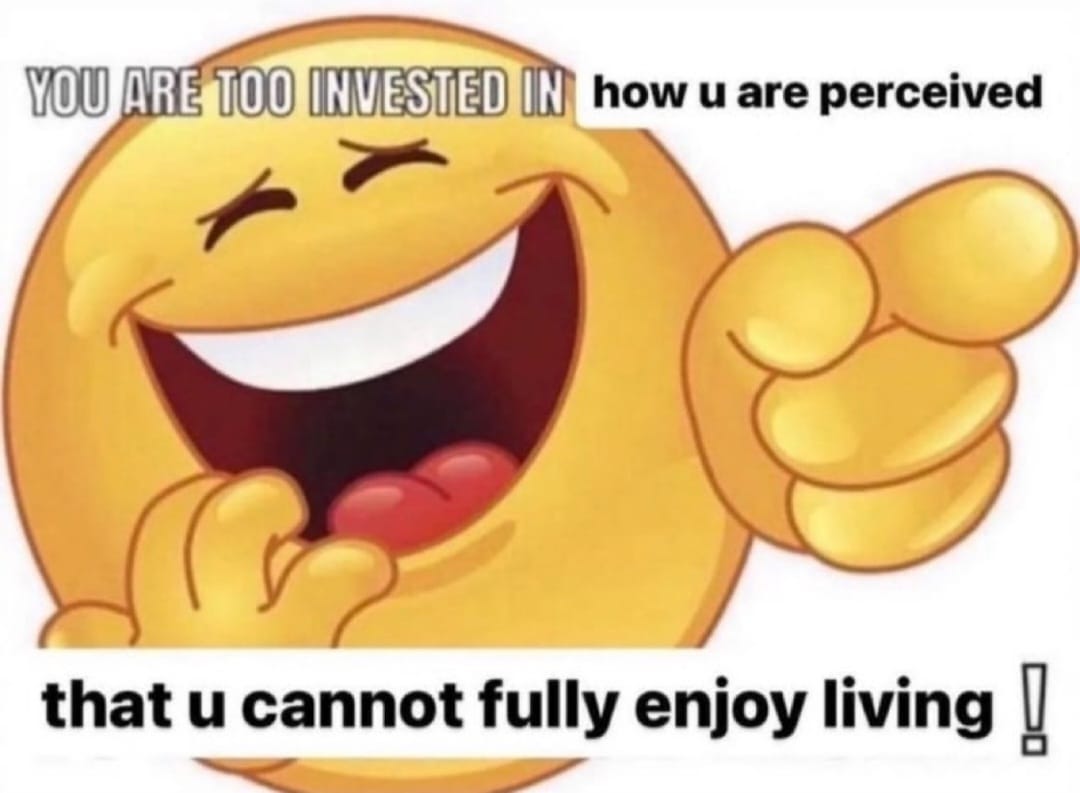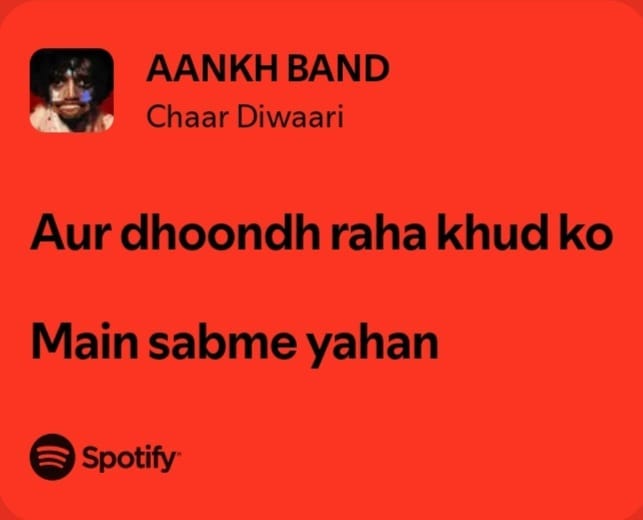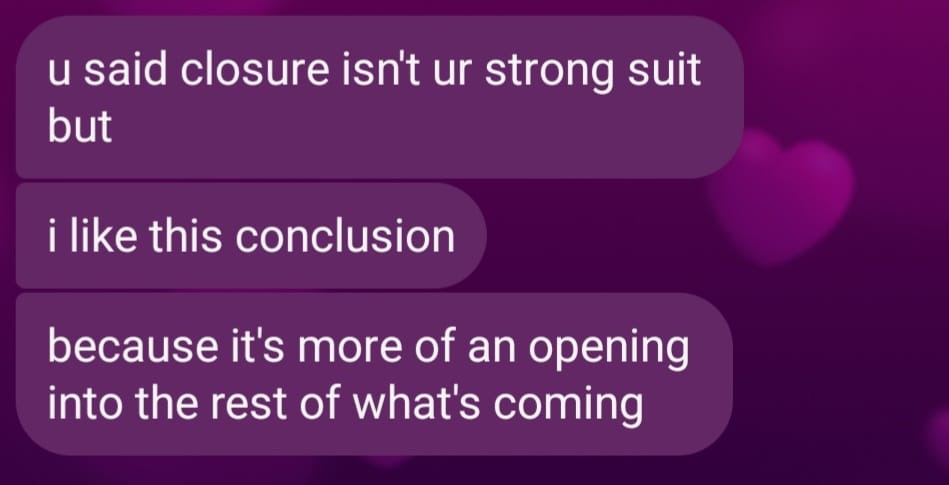Putting out my first substack was daunting, but I had to rip off the bandage then or I knew I would never post it. I’m not one to try out new things, and whenever I do, they end up abandoned halfway through, be it the story I had started writing for a fiction workshop, the translation I was working on for a year for a thesis, or the embroidery projects I had taken on (I lost the embroidery hoop, so really that’s not on me if you think about it). But what surprised me was that people seemed to have liked my article, essay, call it what you want. For two days, I was incessantly checking my stats and views. I had people message me, telling me how much they enjoyed reading it, I was basking in glory! They found me relatable and my writing resonated with them, it was wonderful. My urge to create was proving fruitful and I was more motivated than ever to write more. However, that feeling was short-lived, it was as if someone had hit the breaks in a car too hard when you’re in the backseat: there was a sudden loss of control that I could not quite understand, but soon my dilemma dawned on me: I was being perceived through my writing. It was quite unsettling and a pit made itself home in my stomach when I realized that people might expect something specific from me and my writing: every piece of myself that I put out into the world solidifies me in a box, and what’s worse is my first instinct was to cater to those expectations, making the box close in and shrink. Many things in life terrify me, but being stuck in the box of perception falls in the top 10, I don’t like it one bit. Whenever I am out in the Real World, I feel awkward and alien-like: I wouldn’t know what to say to a stranger if one ever approaches me (unless it’s for directions on the metro). There are so many social scripts you are expected to memorize, that it almost feels like you’ll be graded for it.
Being perceived through my writing is different, though, it’s more vulnerable, less safe (or more, depending on how you see it, I tend to take a pessimistic-ish approach most days). It’s a different kind of test, one where you don’t know the grading criteria. And in my compulsive need to feel safe and comfortable, my reflex is to conform to the expectation. It is as if I’ve set a benchmark for myself, and I have to live up to it every time I write with the awareness that someone else, a foreign gaze, will have access to it. This, of course, was not the case with the first essay (let’s stick with “essay”), I had no expectations to live up to, and I do not enjoy when I am expected to be a certain way, write a certain way, present a certain way. A fundamental inconvenience in my personhood is that, in my attempt to meet the needs of those around me, I neglect and often compromise my own, mostly because I never know what they are. I know I need water but I don’t feel thirsty until I am so deprived of it that my lips dry up and my body begs for hydration. I don’t feel hungry and, unless I externalize my need for food in a schedule or a concerned family member, I won’t eat. This unintended neglect I put myself through never elicits guilt for some reason; maybe if I am always just surviving and enduring, I won’t have to think about the larger problems in life. But if I can’t even eat and drink when my body demands it, am I surviving well? Do I even know how to survive? If survival were my mission, I wouldn’t be here, trying to figure out my writing and how someone who isn’t me, sees it, and other not-so-trivial questions of love and language. I wouldn’t be thinking if my metaphors are too cliché or if my sentences are falling flat. I must create even if it comes at the cost of survival. The biggest ‘but’ here is that I will be perceived through my art.
It is a vicious and tiring cycle.
The dilemma of being perceived disconcerts me in many ways. Occasionally, I feel myself disconnecting from the person I am, as if I’m merely sitting inside my body with no agency, just watching the world pass by me. People define dissociation as seeing yourself from the outside, but whenever I look at myself in a state like that, I don’t know who or what I am seeing and it feels untruthful when I tell people I am an open book since I feel like I don’t know myself enough. The only way for me to get to know myself is through other people: I am who I am when I am in relation to someone else: a friend, a child, a sibling. It’s a paradox. It’s uncomfortable. And strangely enough, it feels narcissistic, almost as if I am looking for a part of myself in other people, slowly trying to piece the puzzle together. However, the difficulty level of this puzzle is constantly changing. With every book I read, every TV show I watch, every person I meet, and every song I listen to, I change in a small but significant way, a new piece is made, or an old one gains more detail. Sometimes I can’t tell how I am changing, other times these things teach me something about myself.
I like to think of my mind as a room. It has some things that I put in it with love and care, and it has others that Society has given me as insistent gifts. These gifts don’t quite match the decor, they just sit there. The burden of perception sits right in the middle of the room next to the burden of existence, like twin pimples on your nose. It helps to have external control though: my tattoos cover my left arm and are now creeping up on my right. My phone case and laptop are filled with bills, tickets, and stickers. I used to have unnaturally colored hair at one point. These things tend to make people curious and make them look at me on public transport, I don’t know how I developed this instinct but I can tell when someone is looking at me with admiration and when someone is not.
I hate how normal it is to gawk at people in public, but it makes me wonder what a stranger sees when they look at me with all the art I cover myself with. One once asked me if I was a musician because of the combination of my tattoos and the kurta I was wearing that day. It made me realize I like it when people are curious about me, and that’s how I wish a stranger would perceive me: with curiosity.
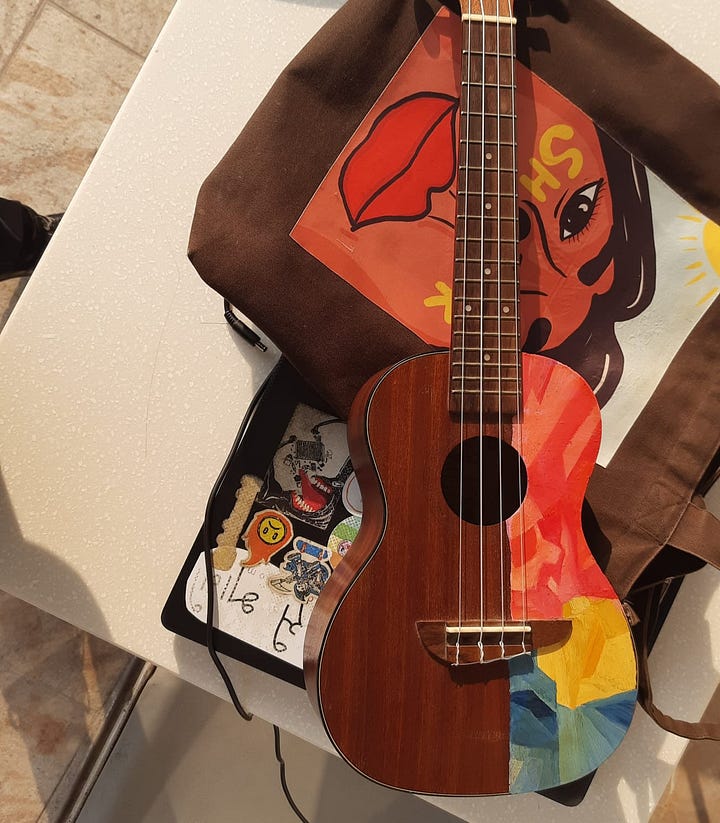
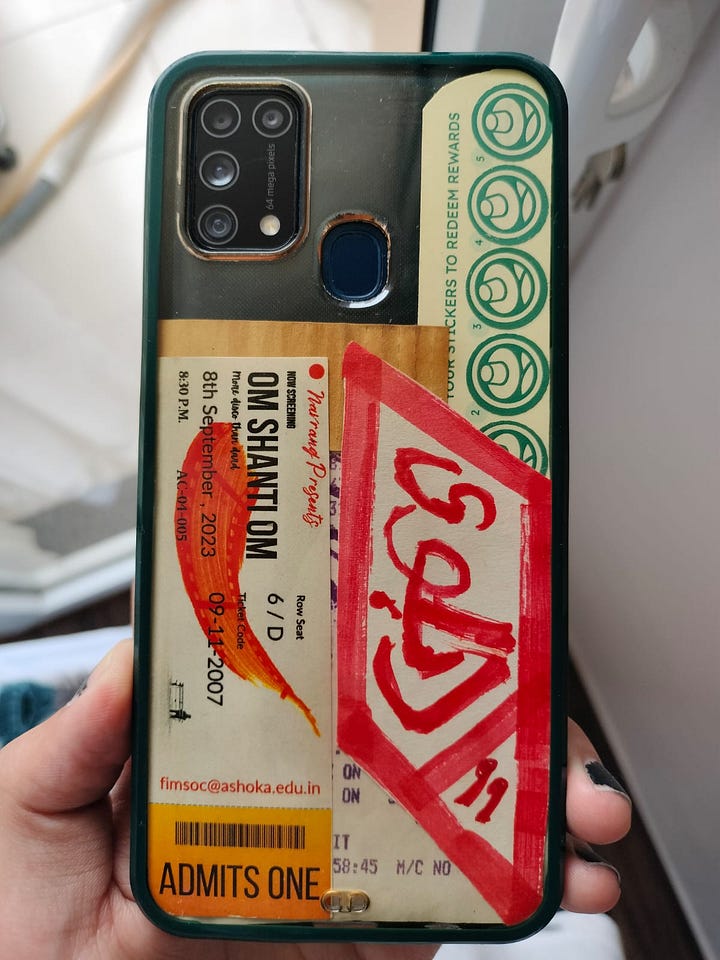
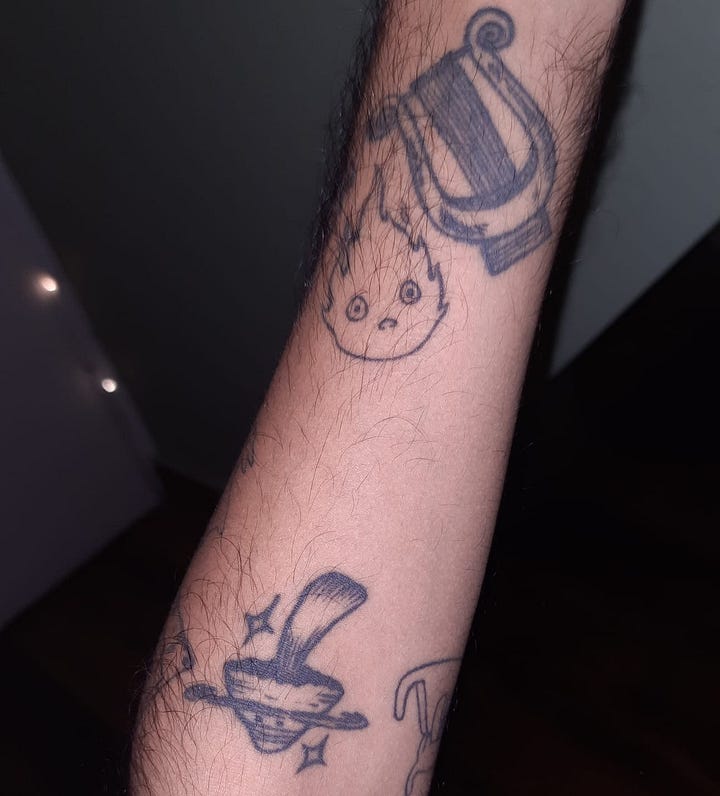
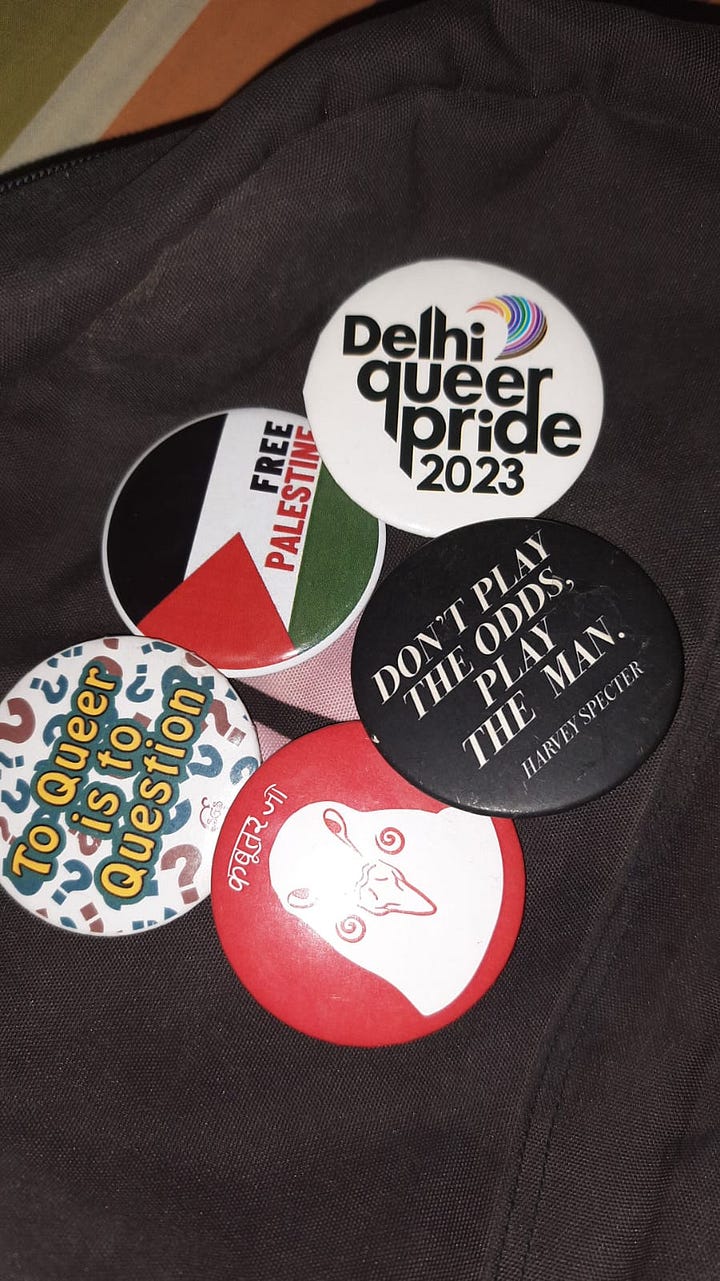
There is so much that I do to make peace with the fact that I am perceived that sometimes I lose track of whether my externality defines me or I define how I express myself. I see two very different versions of myself: the one in my head, and the one outside. But there are forces in the world that make you see the beautiful middle ground between these disparities known as friends. My friends seem to have a knack for observing me in ways I don’t observe myself and what fills my belly with love is that all of my choices in life led me to them. I often look at myself through their eyes when I find it difficult to do so through my own. To them, I am lovable, kind, and selfless, and if they didn’t tell me that, I wouldn’t know that I am capable of those things, and knowing them makes me want to be those things, for them and myself. One of the things that has stayed with me and changed me for the better from my undergraduate has been a definition of queerness, or rather the lack thereof: to define is to limit, but how does one live without being defined? How do you stabilize your identity? Why is there an almost extreme need for a stable identity? I feel that in our ontologies we create our centralities and the mere fact that we don’t live in a vacuum perpetually unravels us. We should let it.




